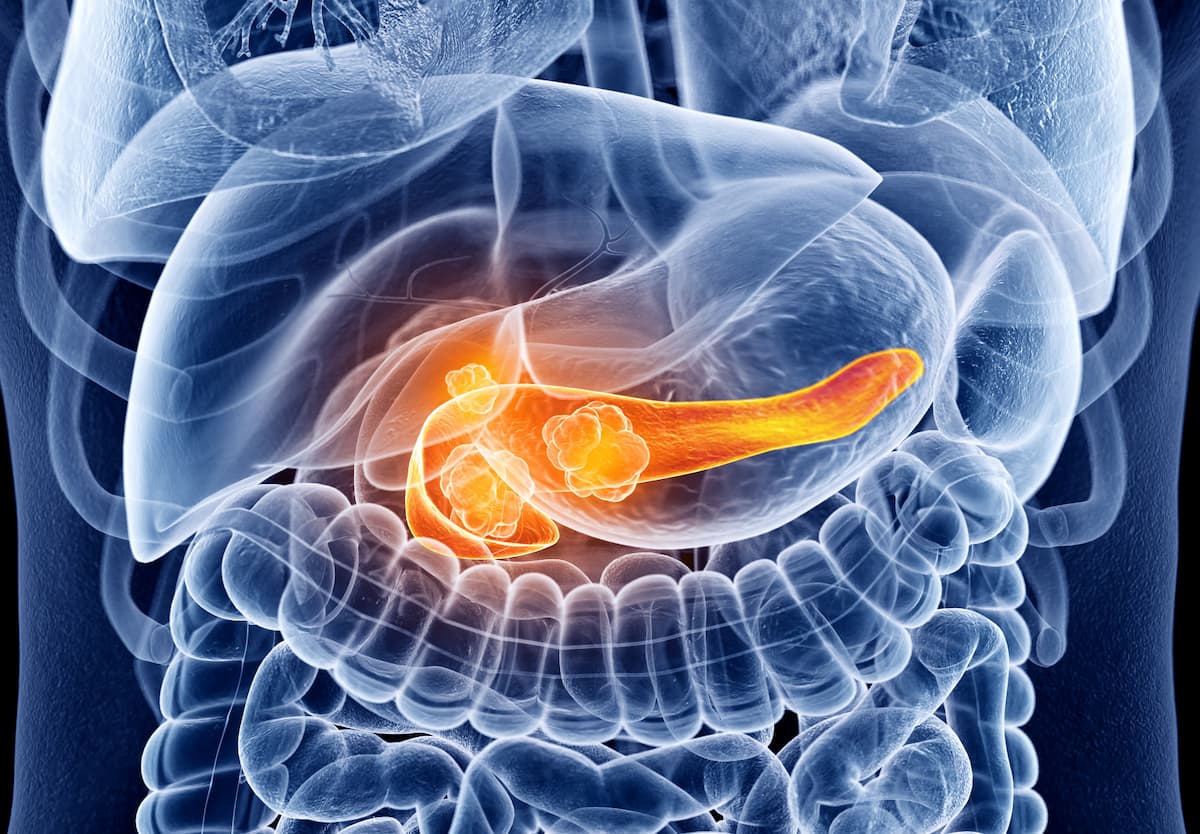FDA Grants Orphan Drug Designation to NT-I7 in Advanced Pancreatic Cancer
Treatment with NT-I7 may boost the immune system and enhance antitumor activity in patients with pancreatic cancer and other solid tumors.
Investigators previously assessed the safety and tolerability of NT-I7 in combination with pembrolizumab as a treatment for those with pancreatic cancer and other advanced solid tumors as part of the phase 1b/2a NIT-110 or KEYNOTE PNA60 trial (NCT04332653).

The FDA has granted orphan drug designation to NT-I7 (efineptakin alfa; rhIL-7-hyFc) as a treatment for patients with advanced pancreatic cancer, according to a press release from NeoImmuneTech, Inc.1
NT-I7 was designed as a long-acting human interleukin 7 (IL-7), which works to develop T cells and prolong an immune response to chronic antigens in cancer or foreign antigens in infectious disease. Investigators are assessing the novel agent across multiple settings, including as a treatment for those with solid tumors and as a vaccine-adjacent therapy. Additionally, developers intend to evaluate the treatment in hematologic malignancies as well as other immunology-focused populations.
“We are excited that the FDA granted NT-I7 an [orphan drug designation] in the treatment of pancreatic cancer,” Luke Oh, PhD, president at NeoImmuneTech, said in the press release. “This decision adds further credibility to our existing evidence that NT-I7 has the potential to bring a much-needed therapy option to people [with] pancreatic cancer. We look forward to continuing our collaboration with FDA, as we explore the therapeutic benefits of combining NT-I7 with other anti-cancer treatments such as immunotherapies for patients with pancreatic cancer.”
Investigators previously assessed the safety and tolerability of NT-I7 in combination with pembrolizumab (Keytruda) as a treatment for those with pancreatic cancer and other advanced solid tumors as part of the phase 1b/2a NIT-110 or KEYNOTE PNA60 trial (NCT04332653).
In NIT-110, patients received NT-I7 intramuscularly at 1200 μg/kg every 6 weeks in combination with pembrolizumab at 200 mg intravenously every 3 weeks.
Patients 18 years and older with histologically or cytologically confirmed advanced or metastatic solid tumors with measurable disease according to RECIST v1.1 criteria were able to enroll on the trial. Other eligibility criteria pertaining to the pancreatic cancer arms included having documented radiographic progression to or intolerance of frontline systemic chemotherapy containing gemcitabine or fluorouracil.
Those who received chemotherapy or any other anti-cancer treatment with a half-life of less than 1 week within 30 days or 5 half-lives or had active central nervous system metastases and/or carcinomatous meningitis were ineligible to enroll on the study. Patients were also unable to enroll if they previously underwent treatment with systemic immunosuppressive medications or had prior non-infectious pneumonitis that needed to be managed with steroids.
The study’s primary end points included safety and tolerability in phase 1b and preliminary overall response rate (ORR) in phase 2a. Secondary end points included duration of response, disease control rate (DCR), progression-free survival, and overall survival.
According to previously published data in Annals of Oncology, the combination produced an ORR of 4% (n = 1/26) and a DCR of 31% (n = 8/26) based on RECIST v1.1 criteria.2 Additionally, the ORR and DCR in those with 1 or fewer liver metastases, respectively, was 18.2% (n = 2/11) and 63.7% (n = 7/11). Among those with 2 or more liver metastases, the ORR was 0% (n = 0/15), and the DCR was 13.3% (n = 2/15).
The ORR and DCR, respectively, was 25% (n = 1/4) and 75% (n = 3/4) in the first-line setting compared with 13% (n = 1/8) and 38% (n = 3/8) in the second-line setting. All patients with a response continued to receive study treatment.
Investigators highlighted treatment-related adverse effects (TRAEs) in 71.9% of patients. Additionally, 56.2% of toxicities were grade 1/2, 9.4% were grade 3, and 6.3% were grade 4. No patients discontinued study treatment following TRAEs, and no patients died.
References
- FDA grants orphan drug designation (ODD) status to NeoImmuneTech's NT-I7 for advanced pancreatic cancer treatment. News release. NeoImmuneTech, Inc. January 30, 2024. Accessed February 2, 2024. http://tinyurl.com/mwmkrvkw
- Naing A, Mamdani H, Barve M, et al. Phase 2a study of NT-I7, a long-acting interleukin-7, plus pembrolizumab: cohort of subjects with checkpoint inhibitor-naïve advanced pancreatic cancer. Ann Oncol. 2022;33(suppl 4):S263-S264. doi:10.1016/j.annonc.2022.04.138